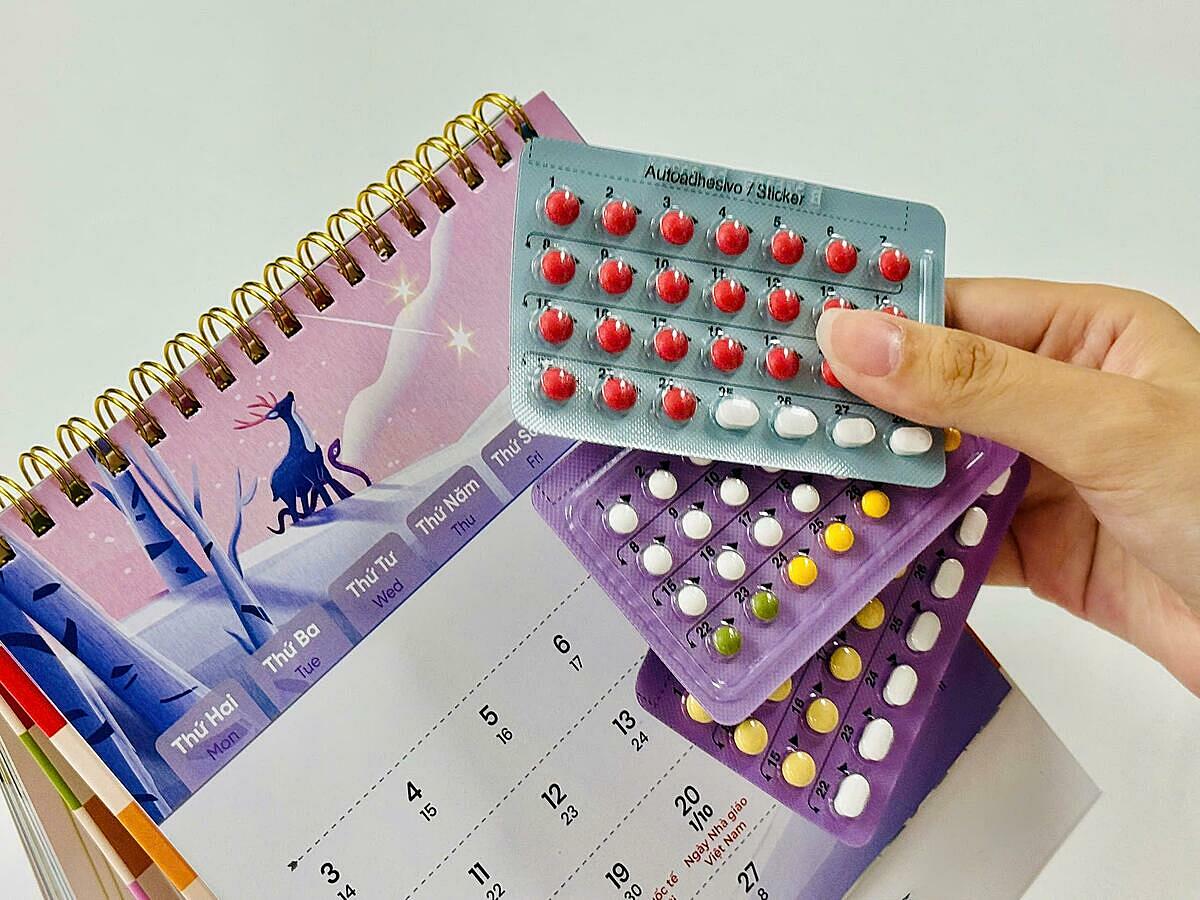Doctor Le Quang Thanh, Vice President of the Vietnam Obstetrics and Gynecology Association (VAGO), says daily birth control pills are a popular family planning method due to their convenience and effectiveness. When used correctly, this method can be up to 99% effective. The following tips can help women use the product more effectively and safely.
Consult with a healthcare professional for appropriate contraceptive advice.
Before using daily birth control pills, women should consult with a healthcare professional. This is to help women receive advice on usage appropriate to their health status, thereby choosing the right type of pill for their needs, improving contraceptive effectiveness, and using the medication more safely.
Initially, side effects such as menstrual irregularities, breast tenderness, and nausea can occur. Doctor Thanh says this reaction is common and usually resolves itself after 2-3 months of regular use, so women shouldn't worry too much. If symptoms persist or cause discomfort, women should consult a doctor for appropriate adjustments.
 |
Illustration of a woman using birth control pills. Photo: H. Huong |
Birth control pills can slightly increase the risk of venous thromboembolism (VTE), usually due to types with high estrogen levels. This is a condition where blood clots form in the veins. However, this condition is rare, ranging from 6-9 cases per 10,000 users. Those who don't use birth control pills also have a natural risk, with a rate of 1-5 cases per 10,000 people.
Associate Professor Nguyen Tien Dung, Deputy Director of the Stroke Center at Bach Mai Hospital, says the risk of thrombosis from birth control pills is much lower than factors like obesity, smoking, or prolonged hospitalization. Women should go to the hospital immediately if they experience signs of severe, sudden headaches, chest pain, shortness of breath, or leg swelling and pain, especially on one side.
Maintain a healthy lifestyle.
According to Doctor Dung, women should maintain a healthy weight, avoid smoking, exercise regularly, and have regular health checkups. This helps maintain good overall health, while minimizing the risk of thrombosis and related complications.
Good health and regular exercise are also key to preventing blood clots that cause strokes. Many scientific studies have shown that the following factors increase the risk of stroke many times over: obesity, smoking, age over 40, previous thrombosis, or a family history of the disease. Some cases of inherited blood clotting disorders or deficiencies in micronutrients such as folate or vitamin B12 make blood clot more easily. People who have undergone surgery, prolonged hospitalization, have underlying heart disease, diabetes, severe infections, Covid-19, etc., can also increase the risk of blood clots forming in the body. According to Doctor Thanh, women at high risk of venous thrombosis should choose non-hormonal contraceptive methods.
 |
Modern women can be proactive in protecting their health. Photo: Marcus Lindstorm |
Pay attention to estrogen levels when choosing pills.
Birth control pills differ in estrogen levels and generation. For example, 1st, 2nd, and 3rd generation pills often have higher estrogen levels. Meanwhile, the latest generation, the 4th generation, has very low estrogen levels at 15 mcg, thereby reducing many initial discomforts such as headaches and breast tenderness. In addition, the progestin component of 4th generation birth control pills has anti-androgenic (male hormone) and minerocorticoid properties, helping to address hormonal acne and control weight.
Doctor Thanh says this generation of pills shows a lower risk of blood clots and has data demonstrating safety for long-term use. New generation pills also support weight control, improve hormonal acne, premenstrual symptoms, and menstrual cramps with regular use.
In summary, women should talk to a healthcare professional for advice on choosing the best pill that suits their needs, ensuring peace of mind throughout the usage process.
Van Ha












